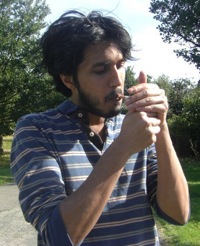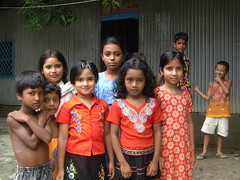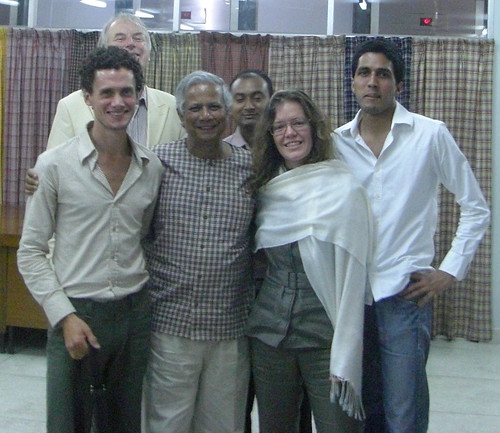Last year I was invited by the visionary Chris Macrae to spend some time at Grameen HQ in Dhaka. Famous for pioneering the Microfinance revolution with Grameen Bank, the rumours were that big things were afoot in Bangladesh.
Grameen's Nobel Prize-winning founder, Muhammad Yunus, had recently published his latest book and I wondered what he and his compatriots really thought about The Future of Capitalism.
And, boy, was I unprepared!
The first thing that strikes you is just how pervasive Grameen really is in Bangladesh.
Over in the West, we're only familiar with Grameen Bank — the multi-billion dollar bank that micro-finances the poor. But that's just one of over 20 Grameen companies — which cover everything from energy to textiles.
Step into the arrivals lounge at the airport in Dhaka and you are greeted by giant billboards advertising Grameen Phone. Go to buy a drink and you notice Grameen Danone. It seems that Grameen have successfully parlayed their way into becoming an impressive conglomerate.
But what's more impressive is the way that they've managed to do this. Sure enough, they run things in legacy command-and-control structures, but they've also managed to instill several systemic principles into each of their ventures along the way.
For example, whilst Grameen Bank would give an unsecured loan, it places certain constraints on the borrower — e.g. one can only borrow if their kids are in school and agree to save a certain amount regularly.
Using free market principles, Grameen have managed to come up with win-win structures that serve both themselves as an enterprise as well as the communities around them. This sort of permacultural thinking is so rare in this world and is what makes Grameen so impressive.
Discovering Grameen Shakti — their solar/biogas-based energy company — was the highlight of the trip for me. It is the best example of a Social Business that I've ever seen and this video on it is well worth watching.
Grameen are masters at creating win-win structures. And they have a broad leadership of about a dozen odd individuals — all friends from university days — who are driven by a common vision and set of ethics.
It wasn't clear if the emerging next generation of the leadership shared this holistic approach of their elders, but that's something that only time can tell. And the same goes for the various multinational Social Business partnerships they've been setting up, e.g. Grameen Intel.
In the meantime, I'd strongly encourage everyone to spend a few days over at Grameen HQ in Dhaka. Hidden beneath the seemingly dull office spaces, there are a lot of valuable lessons to learn there.
And, finally, as for the man himself, I am still in awe of just how genuinely humble Yunus is. Despite the non-stop demands on his time, he persists in making life better for others — without letting facts like being a Nobel laureate and running a multi-billion dollar conglomerate go to his head.
I strongly encourage you to visit Dhaka — and if not, at least read the book.





